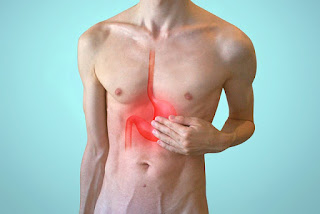 |
| Understanding the Causes and Symptoms of Acute Gastritis |
Acute gastritis or acute gastritis is a condition when the stomach lining becomes inflamed suddenly. If you experience this condition, you will feel pain in the abdomen which is generally temporary. However, if acute gastritis is left untreated and continues to recur, this condition can increase the risk of gastric cancer.
Complaints that appear suddenly and worsen rapidly are called acute conditions. One of the acute conditions that can occur is acute gastritis or gastritis. Acute gastritis occurs because of damage to the lining of the stomach, so that stomach acid irritates the stomach.
However, if the chronic disease does not recur for a long time, then at some point it recurs, this complaint can be considered acute even though the underlying disease is chronic.
Causes of Acute Gastritis
In general, acute gastritis can be caused by several things, including:
Helicobacter pylori infection
H. pylori bacteria is a type of bacteria that can be found in the gastrointestinal tract. These bacteria often attack and cause disturbances in the form of inflammation of the stomach lining.
Use of non-steroidal anti-inflammatory drugs and corticosteroids
Non-steroidal anti-inflammatory drugs and corticosteroids are also often the cause of acute ulcers. The side effects of these drugs generally attack the digestive tract.
Consumption of alcoholic beverages
Alcoholic beverages consumed in excess can irritate the stomach and cause acute ulcers.
Apart from the three things above, acute gastritis can also be affected by several other rare conditions, such as autoimmune diseases, viral infections, kidney failure, Crohn's disease, or sarcoidosis. The burden of thought or stress is also considered to be able to trigger this complaint due to excess stomach acid production.
Symptoms of Acute Gastritis
Some people can experience acute gastritis but do not realize it because the symptoms are still mild. Not infrequently the symptoms of acute gastritis are often ignored and not taken seriously. However, there are also people who experience acute ulcer symptoms which are quite disturbing.
The following are the symptoms of acute gastritis that generally occur:
- Heartburn
- Stomach bloating or feeling full, especially after eating
- Nauseous
- Vomit
- No appetite
- Hot feeling like burning in the stomach
- Vomiting blood
- black chapter
How to Prevent Acute Gastritis
If you often experience acute gastritis, there are several ways you can do to relieve this condition, namely:
- Reduce consumption of hot, spicy and sour foods
- Reduce consumption of high-fat foods and those processed by frying
- Reduce consumption of alcoholic and caffeinated beverages
- Avoid eating large portions
- Manage stress well
- Quit smoking
There are several types of foods to relieve acute gastric complaints that you can consume, and keep the disease from recurring.
These foods are low-fat foods (chicken breast and fish), low-acid foods (vegetables), probiotic foods (yogurt), and high-fiber foods (oatmeal, spinach, bananas, apples).
Acute gastritis can come at any time, but you can avoid it with a healthy diet and lifestyle.
If you experience recurrent acute gastritis, you should consult a doctor. The doctor will ask about your complaints and medical history, then perform a physical examination and supporting examinations, such as blood tests and endoscopy. After confirming the condition of your stomach, the doctor can provide appropriate treatment.
Related Search:
- acute gastritis,
- acute gastritis symptoms,
- acute gastritis treatment,
- acute gastritis icd 10,
- icd 10 code for acute gastritis,
- the nurse advises the patient who has just been diagnosed with acute gastritis to:,
- how long does acute gastritis last,
- acute gastritis diet,
- acute gastritis dogs,
- acute gastritis in dogs,
- acute gastritis dog,
- acute gastritis without bleeding,
- what is acute gastritis,
- what is a common sign of acute gastritis?,
- icd 10 acute gastritis,
- acute gastritis causes,
- acute gastritis without bleeding icd 10,
- acute gastritis alcohol,
- acute gastritis vs chronic gastritis,
- treatment acute gastritis,
- natural remedies for acute gastritis,
- acute gastritis or peptic ulcer may cause:,
- acute gastritis or peptic ulcer may result in quizlet,
- treatment for acute gastritis,
- acute gastritis cause,
- what condition is considered a cause of acute gastritis?,


